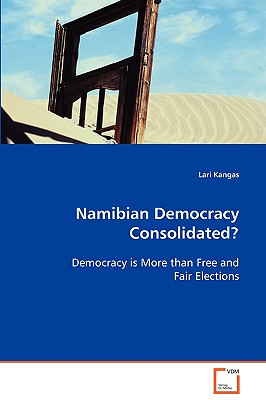On the turn of Millennium President Martti Ahtisaari stated that Namibia is one of the leading democracies in Africa. Free and fair elections and continuous peace for more than ten years had international observers pleased of the status quo. More than 15 years into the independence, has Namibia been able to consolidate its democracy? Does it have institutions in place to continue democratic practices and are the voters still able to keep the government accountable? Lari Kangas investigates the current state of the three branches of government judicial, legislature and executive and draws conclusions whether they have been democratically consolidated. Other important institutions are also investigated, like various freedoms commonly enjoyed in democracy. Without freedom of speech for example, it becomes suspect whether elections can be fair. Both international and local comparisons are made. Kangas also discusses the correlation between economic development and democratic consolidation. Namibia has significantly increased the income gap between the rich and the poor since the apartheid regime.
| FindBook |
有 1 項符合
Namibian Democracy Consolidated?: Democracy Is More Than Free and Fair Elections的圖書 |
 |
Namibian Democracy Consolidated?: Democracy Is More Than Free and Fair Elections 作者:Kangas 出版社:VDM Verlag Dr. Mueller E.K. 出版日期:2008-10-06 語言:英文 規格:平裝 / 168頁 / 22.9 x 15.2 x 1 cm / 普通級 |
| 圖書館借閱 |
| 國家圖書館 | 全國圖書書目資訊網 | 國立公共資訊圖書館 | 電子書服務平台 | MetaCat 跨館整合查詢 |
| 臺北市立圖書館 | 新北市立圖書館 | 基隆市公共圖書館 | 桃園市立圖書館 | 新竹縣公共圖書館 |
| 苗栗縣立圖書館 | 臺中市立圖書館 | 彰化縣公共圖書館 | 南投縣文化局 | 雲林縣公共圖書館 |
| 嘉義縣圖書館 | 臺南市立圖書館 | 高雄市立圖書館 | 屏東縣公共圖書館 | 宜蘭縣公共圖書館 |
| 花蓮縣文化局 | 臺東縣文化處 |
|
|
圖書介紹 - 資料來源:博客來 評分:
圖書名稱:Namibian Democracy Consolidated?: Democracy Is More Than Free and Fair Elections
|










